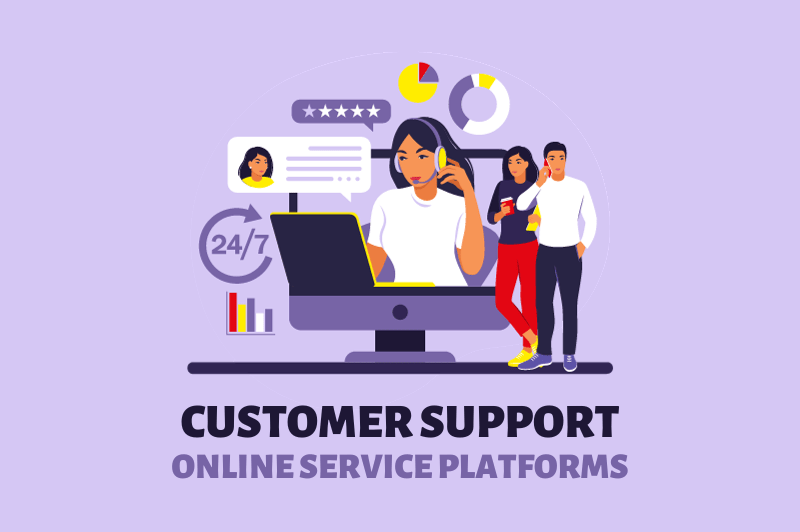Table of Contents
Running a successful online business requires more than just a great product or service. In the digital age, leveraging the right online business tools can make all the difference in streamlining operations, reaching a wider audience, and maximizing profitability. In this comprehensive guide, we’ll explore the essential tools every online business should consider for efficient management and growth.
Introduction to Online Business Tools
In the vast landscape of online business, managing various aspects efficiently is paramount. This is where the right set of tools come into play, offering solutions to challenges and enhancing productivity. Let’s delve into the must-have tools that can elevate your online business to new heights.
Tool 1: Project Management Software
Running an online business involves juggling multiple tasks and projects simultaneously. Project management software helps in organizing workflows, assigning tasks, and monitoring progress in real-time. Its collaborative features foster effective communication among team members, ensuring everyone is on the same page.
Tool 2: Customer Relationship Management (CRM) System
Building strong and lasting relationships with customers is vital. A CRM system assists in managing customer data, tracking interactions, and analyzing customer behavior. This tool aids in personalized communication, sales management, and customer segmentation for targeted marketing.
Tool 3: E-commerce Platform
For businesses selling products or services online, a robust e-commerce platform is indispensable. It facilitates the creation of an online store, handles secure payment processing, and efficiently manages inventory, providing a seamless shopping experience for customers.
Tool 4: Social Media Management Tools
In the age of social media, managing multiple platforms can be overwhelming. Social media management tools simplify this process by allowing scheduling across various platforms, providing analytics for performance measurement, and even offering features like social listening to understand audience sentiments.
Tool 5: Search Engine Optimization (SEO) Software
To stand out in the crowded online space, a solid SEO strategy is crucial. SEO software assists in keyword research, on-page and off-page optimization, and competitor analysis. It’s the key to improving your website’s visibility and ranking on search engine results pages.

Tool 6: Email Marketing Platforms
Email marketing remains a powerful tool for reaching and engaging your audience. Email marketing platforms facilitate the creation and management of email campaigns, with features like automation and personalization. Analytics tools help in tracking campaign performance.
Tool 7: Analytics and Reporting Tools
Data is the backbone of informed decision-making. Analytics and reporting tools provide valuable insights into various aspects of your business. Customizable reports, performance metrics, and key performance indicators (KPIs) assist in tracking and assessing your business’s overall performance.
Tool 8: Finance and Accounting Software
Efficient financial management is non-negotiable. Finance and accounting software helps in invoicing, billing, expense tracking, and financial reporting. It streamlines financial processes, ensuring accuracy and compliance.
Tool 9: Cybersecurity Solutions
Protecting sensitive business data is paramount in the digital age. Cybersecurity solutions offer features like data protection, encryption, threat detection, and prevention. Regular security audits ensure your online business remains resilient against potential threats.

Tool 10: Customer Support Platforms
Providing excellent customer support is a cornerstone of any successful business. Customer support platforms, including live chat and ticketing systems, help in addressing customer queries promptly. Integrating knowledge bases enhances customer self-service, contributing to overall satisfaction.
Integration of Tools for Seamless Workflow
While each tool serves a specific purpose, integrating them for a seamless workflow is crucial. Compatibility between tools and automation solutions can create a unified dashboard, allowing for efficient collaboration and data flow among different departments.
Cost Considerations and Budgeting
Investing in the right tools is an investment in your business’s success. However, it’s essential to evaluate the return on investment (ROI) and consider budget-friendly alternatives. Striking a balance between quality and affordability ensures sustainable growth.
Training and Onboarding Processes
Implementing new tools requires a competent team. Training and onboarding processes are vital to ensure your team is proficient in using the tools effectively. Utilizing vendor resources and fostering a culture of continuous learning contribute to long-term success.
Case Studies: Successful Implementation Stories
Real-world examples demonstrate the tangible impact of implementing these tools. Explore case studies highlighting businesses that have successfully integrated these tools, showcasing improvements in efficiency, customer satisfaction, and overall operations.
Future Trends in Online Business Tools
The landscape of online business tools is ever-evolving. Stay ahead by exploring future trends, including the integration of artificial intelligence, blockchain for secure transactions, and features addressing environmental sustainability.
Challenges and Solutions in Implementing Online Business Tools
Despite the benefits, implementing new tools comes with challenges. Overcoming resistance to change, addressing technical issues promptly, and ensuring ongoing support and maintenance are crucial for a smooth transition.
Legal and Compliance Considerations
Adhering to legal and compliance standards is imperative for any online business. Ensure your tools comply with data privacy regulations like GDPR. Regular audits and assessments can help identify and address any potential legal issues.
Conclusion
In the dynamic world of online business, having the right tools can be a game-changer. The 10 tools outlined here cover essential aspects, from project management to cybersecurity. Continuously evolving and adapting your toolset empowers your business to thrive in the digital landscape.
Additional Resources and Recommendations
To further enhance your knowledge and stay updated, explore relevant books, courses, and webinars. Engage with industry forums and communities to exchange insights and experiences. Staying informed is key to navigating the ever-changing world of online business tools.
Frequenty Asked Questions (FAQs)
1. What is project management software and why is it important for managing an online business?
– Project management software helps in organizing workflows, assigning tasks, and monitoring progress in real-time. It fosters effective communication among team members and ensures everyone is on the same page.
2. What is a CRM system and how can it benefit my online business?
– A CRM system helps in managing customer data, tracking interactions, and analyzing customer behavior. It aids in personalized communication, sales management, and customer segmentation for targeted marketing.
3. Why is an e-commerce platform essential for online businesses?
– An e-commerce platform facilitates the creation of an online store, handles secure payment processing, and efficiently manages inventory, providing a seamless shopping experience for customers.
4. How can social media management tools simplify the management of multiple platforms?
– Social media management tools allow scheduling across various platforms, provide analytics for performance measurement, and offer features like social listening to understand audience sentiments.
5. What is the role of SEO software in improving online visibility and ranking?
– SEO software assists in keyword research, on-page and off-page optimization, and competitor analysis. It is crucial for improving your website’s visibility and ranking on search engine results pages.
6. How can email marketing platforms benefit my online business?
– Email marketing platforms facilitate the creation and management of email campaigns, with features like automation and personalization. Analytics tools help in tracking campaign performance.
7. What insights can analytics and reporting tools provide for my online business?
– Analytics and reporting tools provide valuable insights into various aspects of your business. Customizable reports, performance metrics, and key performance indicators (KPIs) assist in tracking and assessing your business’s overall performance.
8. How can finance and accounting software streamline financial processes for my online business?
– Finance and accounting software helps in invoicing, billing, expense tracking, and financial reporting. It ensures efficient financial management, accuracy, and compliance.
9. Why is cybersecurity important for my online business and what solutions are available?
– Cybersecurity solutions offer features like data protection, encryption, threat detection, and prevention. Regular security audits ensure your online business remains resilient against potential threats.
10. How can customer support platforms enhance customer satisfaction for my online business?
– Customer support platforms, including live chat and ticketing systems, help in addressing customer queries promptly. Integrating knowledge bases enhances customer self-service, contributing to overall satisfaction.






